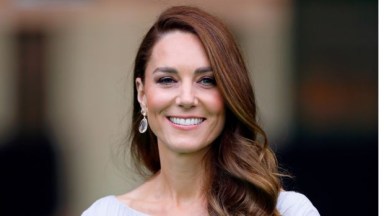Unlock the Editor’s Digest for free
Roula Khalaf, Editor of the FT, selects her favourite stories in this weekly newsletter.
Ahead of Wednesday’s Budget, Labour politicians would have you believe that the UK’s economic problems stem from Liz Truss’s brief and disastrous spell as prime minister. Shadow chancellor Rachel Reeves criticises “the misery that this government has caused homeowners with their kamikaze Budget” — a “mini” Budget in September 2022 that Reeves is undoubtedly right to say sent “our currency crashing and interest rates soaring”.
Truss herself remembers a different history of her 49 days in office. She blames the “deep state” — including the Financial Times — for working to “keep things the same”. Britain’s woes, she argues, stem from the economic establishment undermining any attempt at radical reform and consigning the country to persistent decline.
Both are wrong. While it is fully understandable for Labour politicians to remind the public of Truss’s amateurish government, the economic damage was fleeting. The UK-specific spike in borrowing costs triggered by the “mini” Budget lasted only until late 2022, earning the memorable “moron premium” moniker, while sterling recovered even faster. Our high borrowing costs today are the result of global inflationary forces, a financial market view that the UK economy might run a little hotter than those in other European nations and the structural impediments of Brexit and increasing sickness in the labour market. Truss is an irrelevance.
Her explanations mirror the absurdity of her premiership. Rather than the economic establishment keeping things the same, Treasury officials helped to deliver her vision in the “mini” Budget, the Bank of England saved her bacon with skilful and innovative firefighting and the Office for Budget Responsibility’s forecasts helped restore the credibility of the public finance outlook. Without them, her reputation would be even lower — if that is possible.
Many of these officials are far from being staid small “c” conservatives or the metropolitan liberal elite. The recent submission by David Miles, the OBR’s economy expert, to the House of Lords economic affairs committee illustrates this. He warns of the likelihood of “substantial” distortions from current government (and opposition) plans for higher taxes, and cites the need for radical reforms to levies to offset these costs, bold action to restore productivity growth and welfare reforms that would result in a smaller benefits bill.
I do not know his politics, but Professor Miles’s prescriptions are close to Truss’s heart and he is definitively part of the UK’s economic establishment, having also advised a former Labour government and been a member of the BoE’s monetary policy committee.
The irony is that Truss’s most concrete economic legacy is to give economic radicalism a bad name. Languishing with just 1 per cent average annual economic growth since 2007 compared with 2.5 per cent in the previous 17 years, the economy is crying out for reform, starting with this Budget.
Planning policy needs to be rebalanced in favour of development so that projects can be faster and cheaper. This week the Competition and Markets Authority blamed the “complex and unpredictable planning system” for a shortage of new homes and the high housing costs that have blighted the economic prospects of younger generations. We apply costly sticking plasters such as childcare subsidies and national insurance cuts to improve the returns from work for parents, but most of their problems arise from housing costs. Were a government to show radicalism here, opponents would soon raise the ghost of Liz Truss as a weapon against it.
UK taxes are not only rising but becoming more complicated, with tapers leading to extreme rates as child benefit, childcare subsidies and personal allowances are removed from the rich. Many of these have arisen because of the focus on whether changes are progressive or regressive. Truss was right to attack knee-jerk thinking along these lines in September 2022 — what matters is the overall impact of redistribution, not individual effects. But her incompetence in voicing a sensible economic argument prevents other politicians from taking a similar stance. None could withstand the association of those ideas with Truss.
Her failure, and her naive policy positions, will undermine sensible budgetary reform in the UK for years to come. Taxing carbon properly, gradually ensuring council tax is based on current property values and reforming inheritance tax to widen the base and reduce the rate are all but impossible because they would stir memories of the last “radical” Budget in 2022.
Truss says politicians should be bold and embrace sweeping reforms, predicting there are just 10 years left to save the west. Such actions are incredibly difficult to promote in the UK. And she is to blame.
chris.giles@ft.com
















































































